Internet Safety
Wireless and Mobile Device Safety
Introduction
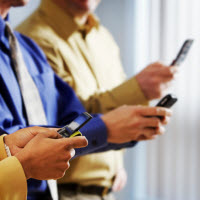
The days when we had to be tied to a desk in order to use the Internet are long gone. With devices like the iPad and smartphones, along with the widespread availability of wireless signals, we can now access the Internet from just about anywhere at anytime. So what precautions should we take while we are on the go?
In this lesson, you will learn tips for securing your wireless network and mobile devices from Internet threats, especially in Wi-Fi hotspots. You will learn how to practice mobile device courtesy. In addition, we will discuss strategies for using mobile devices while driving.
Wireless network security
If you are using a wireless network (also known as Wi-Fi) to access the Internet, you should make sure it is secure; otherwise, all of your activity and information could be accessible to hackers and cybercriminals. Securing a wireless network can get technical, so beginners may prefer to get help from their Internet service providers (ISPs). When setting up your wireless security, consider the following tips:

- Limit your signal strength so it cannot be detected beyond the boundaries of your home.
- Disable SSID broadcasting so your network is not visible to other wireless users within its signal range.
- Use a strong password. You should choose a password or passphrase that's easy for you to remember but difficult for others to guess.
- Enable MAC (Media Access Control) address filtering to prevent unauthorized wireless clients from breaking into your network.
- Make sure your network utilizes WPA (Wi-Fi Protected Access) or WPA2.
- If you use the older WEP (Wired Equivalent Privacy) instead of WPA, make sure to maximize the encryption.
Contact your ISP or visit Wireless-Safety.org for more information on securing your wireless network.
Wi-Fi hotspot safety tips
Being able to access the Internet through Wi-Fi hotspots in coffee shops, hotels, airports, etc. can be quite convenient. However, these Wi-Fi hotspots are often not as secure as your home network. Review the following tips to learn how to stay safe when connecting to a public network.
- Make sure you are on a legitimate network. Cybercriminals sometimes set up rogue networks with common names like Free Wi-Fi or Public Wi-Fi to get you to connect to illegitimate networks. Ask the hotspot owner for the name and login information for the hotspot you are visiting before you connect.
- Protect your computer by making sure your firewall is turned on and your antivirus software is up-to-date.
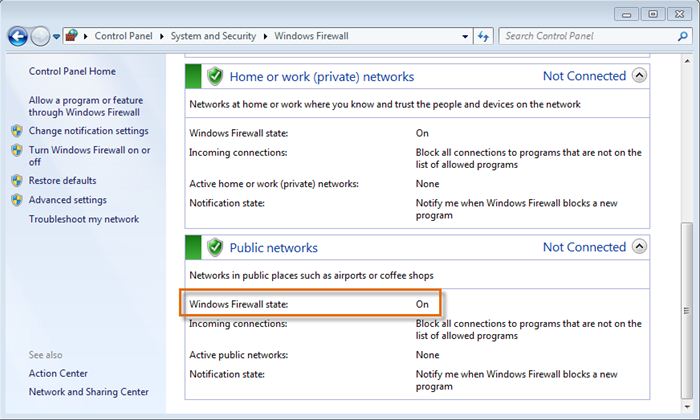
- Turn your Wi-Fi Connection to Network settings to a manual or non-automatic mode. This will prevent your computer from automatically picking up a signal and connecting to a network before you can determine if it is legitimate or not.
- Go to your Network or Sharing settings and disable "File and Printer Sharing" to prevent others on the network from accessing your files. Depending on your operating system, there may be other sharing settings, like public folder sharing, that should also be turned off.
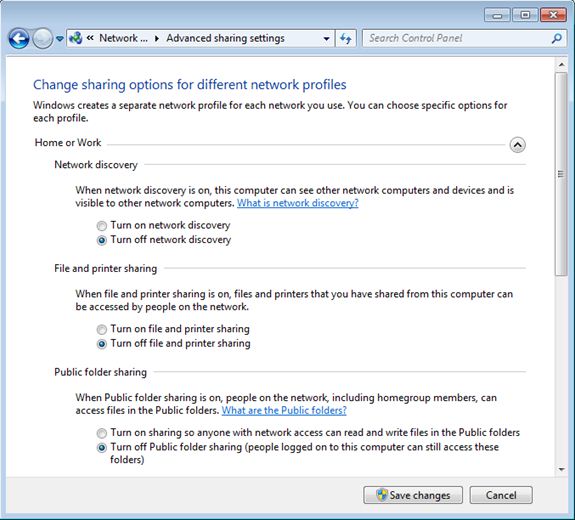
- Make sure you are aware of the people around you when using a hotspot. Keep an eye out for anyone who may be glancing over your shoulder and viewing your private information and activity. Never leave your laptop or mobile device unattended in a public space.
- Do not conduct financial transactions like banking or shopping with a credit card while using public hotspots.
Mobile device safety
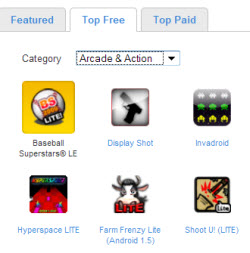
In recent years, mobile phones have become much more powerful, allowing you to browse the Internet, check your email, download programs, and more. But these new abilities also mean there is a greater risk of viruses and other malware, as well as threats to your privacy. When using a mobile device, you should use the same caution that you would use with a computer.
Tips for avoiding malware
Some companies, such as Norton and Kaspersky, offer antivirus software that can run on a mobile phone, but do your research because they may potentially slow down your phone's functions. Here are some tips to help you avoid malware on your mobile device.
- Keep your mobile phone updated. Check your phone manufacturer's website for instructions on downloading security updates.
- Be cautious when downloading programs or apps. A program or app could contain malware, so research it before downloading.
- Avoid "free offers" and "free ringtones". An email or instant message that offers software for download, such as a ringtone or security update, may contain malware.
- If something seems suspicious, trust your instincts.
Privacy on the go
If privacy is important to you, you should pay close attention to the apps you install on your device. Always review their terms of service and privacy policies so you know how they may or may not be using your information. You can also customize your privacy settings if the app gives you the option.
In addition, you should think back to privacy concerns that you've already learned about (for example, geolocation), and how they might affect your experience on a mobile device. This is especially important for social networking apps and other apps that track your activity. To learn more, review Lesson 7's Social Networking and Privacy.
Wireless and mobile device courtesy
With new wireless capabilities and advanced mobile devices like the iPad and smartphones, we can communicate and access media almost anywhere and anytime. However, these new technologies are also becoming increasingly intrusive and can sometimes contribute to troublesome behavior. Disruptive ringtones, noisy conversations and rude texting can disrupt, annoy and anger others, leading to what is now being called Cell Phone Rage. In order to avoid provoking others, consider these guidelines.

- When places like hospitals and airplanes restrict or prohibit the use of mobile devices, follow the rules. These rules usually exist due to disruption problems or safety issues, and your cooperation is needed.
- When you are in a meeting, movie theater, church or similar setting, set your mobile device to silent or vibrate in order to avoid rude disruptions. Texting or using a device in these circumstances is also considered rude, especially in a dark theater where the phone's backlight will be visible. If you absolutely must take a call or text, excuse yourself and go outside.
- You should also avoid engaging in emotional or angry conversations in public, as these can be quite unsettling for those around you.
- When using speaker or video conferencing functions, you should always let the person know when you are not conversing in a private space, so they will not say anything inappropriate or confidential.
- Do not discuss or display sensitive information, like your address, bank account, or Social Security number, while in public. You never know who may be listening.
- You can call 911 from cell phones and help others by reporting crimes or emergencies. However, you should be careful of those who want to borrow your phone. They may run off with it or call a number that will charge your account a high fee. To be safe, simply offer to dial the number for them.
- Always ask permission before shooting a photo or video of someone with your device's camera functions.
- When streaming music or video from mobile devices, be discreet. Keep volume low or use earphones, especially with music that contains explicit lyrics. Do not display inappropriate, disturbing or R-rated video where it can be seen or heard by others, especially children.
Mobile devices and physical safety
Distracted driving
The number of accidents related to driving while talking, surfing, and texting on mobile devices is increasing significantly. So why do the majority of us continue to participate in these activities, despite the overwhelming evidence of their dangers? Consider the following:
- We believe we can multi-task.
The brain is capable of engaging in more than one activity at a time if one of the activities is passive, or non-interactive, like driving and listening to music. However, our brains cannot participate in two interactive behaviors that require thinking and responding at the same time, like driving and dialing a phone number. One activity is always being ignored for the other, thus exposing us to danger. - We believe we are better drivers than others.
We may get upset with others for driving recklessly while talking on their cell phones, but we believe we are better drivers and can pull it off. In reality, we are not driving well either, but "inattention blindness" prevents us from noticing. - We believe we have to respond.
In today's world of instant access, we believe we have to be constantly available; therefore, ignoring a phone call or text message may seem unheard of. Also, some of us get a little "rush of excitement" when we hear that ring or bing telling us we are wanted. Unfortunately, these emotional desires seem to overrule the reasonable side of our brain that cautions us to be safe.
Driving safely with mobile devices
The best way to stay safe is to avoid using a mobile device at all while driving. Some states are even starting to consider or pass laws regarding mobile use while driving, especially for teen drivers. Visit your state's Department of Transportation website to check on the latest laws. If you must use a mobile device while driving, follow these safety tips.
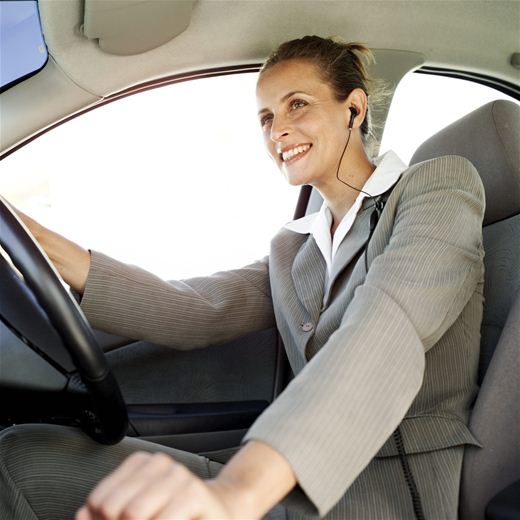
- Do not dial while driving. Dial before you pull out into traffic or while you are stopped at a light or stop sign. Also, do not try to take notes or look up phone numbers while driving.
- If you must answer a call while driving, make sure your phone is within arms reach. Otherwise, safely pull over or let the call go to voice mail.
- Use a hands-free device that will allow you to keep both hands on the wheel. Be sure to set the device up before your trip or when stopped, never while driving. (Note: Some studies show that using hands-free devices do not improve safety while driving).
- Get off the phone when driving in hazardous conditions. Heavy traffic, bad weather, difficult merges, or even unfamiliar routes can be especially dangerous while using a mobile device. Hang up and focus on your driving in these conditions.
- Emotional or stressful conversations can be extra distracting while driving. If you start getting upset, pull over or suspend the conversation.
- You should never text, browse the web, or watch videos while driving. It is too dangerous. If you use GPS navigation, program your trip before pulling into traffic, and pull over if you need to re-program your route. While driving, keep your eyes on the road and rely on the GPS voice for directions.
- No matter how scenic or fascinating a view is, you should never attempt to take a photo or video with your mobile device while driving. It's too disorienting. If it is safe, pull over. If it is not, let it go.
Accidents from distracted walking are also on the rise. For many of the same reasons as listed above, walking and engaging with a mobile device can also prove harmful to your health.
Cell phone radiation and cancer
Interest and debate regarding cell phones and their link to cancer, particularly brain cancer, is on the rise due to increasing research. Cell phones, as well as other wireless devices, emit low-frequency "non-thermal" radiation that is considered the cause of the cancer. At this time, the World Health Organization, American Cancer Society, National Cancer Institute, and Food and Drug Administration have all found that the use of cell phones do not pose a public health risk. However, they do support continued research on the subject, especially in regard to long-term exposure.
If you are concerned about radiation, there are a few things you can do to limit your exposure, including using a headset or speaker while on your phone and using a low-radiation cell phone. For more information, you can go to the websites below:
- Cell Phone Radiation and Brain Cancer Debate Continues (from MobileBeyond)
- Specific Absorption Rate (SAR) For Cell Phones: What It Means For You (from FCC.gov)
- How risky is cell-phone radiation? (from Consumer Reports)


